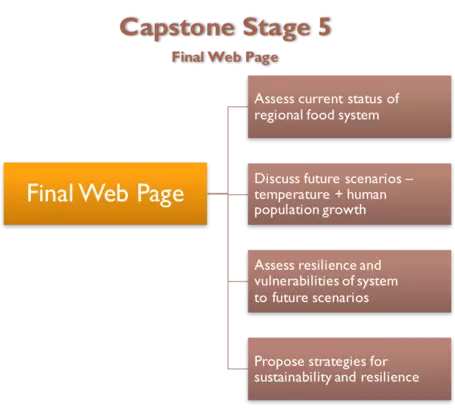Module 12: Capstone Stage 5
Gigi Richard, Colorado Mesa University
This material was developed and reviewed through the InTeGrate curricular materials development process. This rigorous, structured process includes:
- team-based development to ensure materials are appropriate across multiple educational settings.
- multiple iterative reviews and feedback cycles through the course of material development with input to the authoring team from both project editors and an external assessment team.
- real in-class testing of materials in at least 3 institutions with external review of student assessment data.
- multiple reviews to ensure the materials meet the InTeGrate materials rubric which codifies best practices in curricular development, student assessment and pedagogic techniques.
- review by external experts for accuracy of the science content.
This activity was selected for the On the Cutting Edge Reviewed Teaching Collection
This activity has received positive reviews in a peer review process involving five review categories. The five categories included in the process are
- Scientific Accuracy
- Alignment of Learning Goals, Activities, and Assessments
- Pedagogic Effectiveness
- Robustness (usability and dependability of all components)
- Completeness of the ActivitySheet web page
For more information about the peer review process itself, please see https://serc.carleton.edu/teachearth/activity_review.html.
- First Publication: January 11, 2018
- Reviewed: May 10, 2019 -- Reviewed by the On the Cutting Edge Activity Review Process
Summary
Module 12 is comprised of Stage 5 of the semester-long capstone project. In Stage 5, students compile, organize, summarize and synthesize the data and information they've collected through the semester about their assigned food region into a final website or presentation. As outlined in the diagram below, the final website (or presentation) should summarize the physical and human environment of the food region and assess the current status of the regional food system. Students must then discuss future scenarios for their region for temperature and human population growth. Based on their research on the regional food systems, students will assess the resilience and vulnerabilities of the exiting systems to the future scenarios. Finally, students will propose strategies to increase the sustainability and resilience of the regional food systems.
Learning Goals

![[creative commons]](/images/creativecommons_16.png)
Provenance: Gigi Richard, Fort Lewis College
Reuse: This item is offered under a Creative Commons Attribution-NonCommercial-ShareAlike license http://creativecommons.org/licenses/by-nc-sa/3.0/ You may reuse this item for non-commercial purposes as long as you provide attribution and offer any derivative works under a similar license.
As outlined in the capstone overview (Stage 1), Capstone Stage 5 provides the final benchmark to support and assess students' progress on their semester-long Future Food Scenarios capstone project and toward achieving the course learning goals.
Context for Use
See
Capstone Stage 1 for details.
Description and Teaching Materials
See
Capstone Stage 1 for details. Student materials for
Module 12: Capstone Stage 5 are also available, including student instructions.
Teaching Notes and Tips
See
Capstone Stage 1 for details.
Assessment
A rubric for the final capstone product is included with the
Module 12: Capstone Stage 5 -Student MaterialsReferences and Resources



![[creative commons]](/images/creativecommons_16.png)


